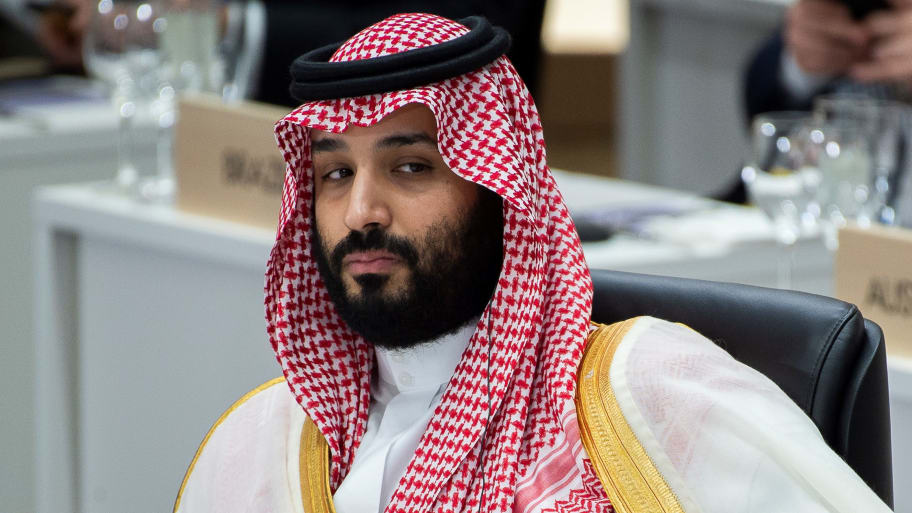
Elliot Blondet / Getty
First, they said it nicely: play
along and cut to your quotas, or we’ll all suffer low oil prices for
longer. Then they put their foot down: start cutting deeper or else. And
now it has emerged what the “or else” part was—a new price war.
The Wall Street Journal’s Benoit Faucon and Summer Said reported
earlier this week that Saudi Energy Minister Abdulaziz bin Saud had
threatened Nigeria, Angola, and Iraq with another oil price war if they
didn’t get in line with the production cuts, according to OPEC
delegates. If they kept producing more than their quotas, Saudi Arabia
would start selling its crude at a discount on these three countries’
key markets, stealing market share. In
a phrase reminiscent of some of the best crime dramas, bin Saud
reportedly told Angolan and Nigerian delegates, “We know who your
customers are.”
OPEC’s crude oil production last month fell
to the lowest in thirty years, at 22.69 million bpd. However, Iraq,
Angola, and Nigeria still fell short of their quotas: Iraq only managed
to achieve 70 percent compliance, Nigeria did a little better at 77
percent, and Angola even better at 83 percent. But that was not good
enough.
It is
understandable why the OPEC leader has had enough. The Saudis were not
only the driver behind the latest agreement. They also voluntarily
deepened their own production quota, pledging to cut an additional one
million bpd on top of the more than two million bpd they agreed to cut,
shouldering the largest part of the total 9.7-million-bpd OEPC+ cut.
And
they have stuck to it, unlike the three laggards. Last month, the
Kingdom pumped 7.53 million bpd, when it had originally been set a quota
of 8.5 million bpd, the same as OPEC+ fellow Russia, which, however,
has been slow to reach its own quota. The Saudis have literally done
whatever it takes to prop up prices. And prices have remained weak. That
would frustrate even the most patient of producers.
Brent crude traded
at more than $51 a barrel in early March, a few days before Saudi
Arabia declared its first price war of the year against Russia for its
refusal to sign up for an extension of the previous round of cuts,
agreed on last December. On March 9, the benchmark plummeted below $35 a
barrel.
After a further
plunge in April on the back of the coronavirus lockdowns, Brent has to
date recovered to about $40. So, if Saudi Arabia makes good on its
threat, this time Brent—and WTI—will be falling from a lower starting
point. This is the only thing we can be sure of.
Of
course, the threat of a price war remains hypothetical. Perhaps it
would prove to be enough to get Iraq, Nigeria, and Angola to mend their
ways and start cutting production like they mean it. It would be the
safer choice because Saudi Arabia has more oil, and it can afford to
sell it more cheaply than the three laggards, at least for a while. But
what if they don’t?
Well,
if they don’t, we’ll likely have a new price crash, and it could turn
out to be worse than the first one as it would come amid a rising
fear—and perhaps some evidence—of a second wave of Covid-19 infections
in the world’s largest consumer. Meanwhile, demand has been slow to
rebound.
There have been some good signs such as a pickup in gasoline production in the U.S. and a drawdown
in floating oil storage. And yet, most analysts warn that people around
the world would continue to be cautious in commuting and traveling,
which will continue to affect oil demand.
If,
in such an environment, Saudi Arabia decides to make good on its
threat, oil will fall sharply. Just how low it would fall is anyone’s
guess, but it is safe to say such a development would hardly benefit
anyone, including Saudi Arabia. Certainly, it could beef up exports to
undermine the market shares of Iraq, Nigeria, and Angola in China and
India by cutting prices, but it wouldn’t be able to keep on doing it for
a very long time. The Kingdom has a deficit to deal with.
It
could do it for a short while, to make its point. And then Iraq,
Nigeria, and Angola could continue under complying because there would
be nothing else Saudi Arabia could do to stop them. And that’s not all.
Earlier this week, Russia’s Energy Minister said there had been no discussions in OPEC+ to continue cutting deep after the end of July.
As
per the agreement, the cuts would be relaxed from 9.7 million bpd to
7.7 million bpd after the July extension. But it’s still early July, and
there is a problem with compliance. That Saudi Arabia could propose
another extension is not out of the question because oil continues to be
way too cheap for it. And then we will have another OPEC+ drama brewing
and, should the Saudis’ patience expire, a second price war.
By Irina Slav for Oilprice.com
We at OOO SVAB was founded in 2002 in the Russian Federation with Registration number 1021605355826 are mandates and agent to reputable refineries in the Russian federation.For all petroleum products. Aviation Kerosene,Jet fuel (JP 54-JET,A1,5), Diesel (Gas Oil) and Fuel Oil D2, D6,spot for FOB Rotterdam. Contact: svab.o@yandex.ru
ReplyDeleteOn the other hand she might have found a guy who she is seeing so i feel you should hack the phone because some women are mischievous they keep secret and find a way to move out of this i feel there is someone she is seeing so you can contact WWW.HACKINTECHNOLOGY.COM and see so you can have a concrete reason so its up to you just a piece of advise from a rea life similar problem
ReplyDelete